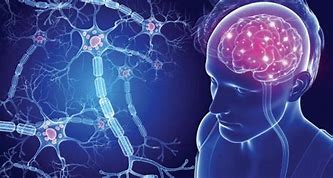Hi guys! I am sure all of you are doing great today. As we keep giving attention to our health, then we continue to enjoy more of the provisions of God for us here. Today’s subject is the role of homeopathy in multiple sclerosis. Please take your time to enjoy it. Cheers
What is Multiple sclerosis (MS)?
Multiple sclerosis (MS) is a chronic, inflammatory disease that affects the central nervous system. The central nervous system (CNS) consists of the brain and the spinal cord. Surrounding and insulating the nerve fibers of the CNS is a fatty tissue called myelin. Myelin protects nerve fibers and allows them to function normally.
MS causes myelin to be lost, and scar tissue to be formed, called sclerosis, causing plaques or lesions to form. Damaged nerve fibers disrupt the ability of the nerves to send signals round the body properly. The damaged areas, known as plaques or lesions produce various symptoms of MS.
MS is a potentially disabling disease of the brain and spinal cord (central nervous system).
A person’s risk of developing MS is increased if a close relative has the condition, or having certain viral infection like Epstein-Barr, the virus that causes infectious mononucleosis, or if you have thyroid disease, type 1 diabetes or inflammatory bowel disease.
The cause of MS is not known, but theories include that it is an autoimmune disease. In MS, the immune system attacks the protective sheath (myelin) that covers nerve fibers and causes communication problems between the brain and the rest of the body. Eventually, the disease can cause the nerves themselves to deteriorate or become permanently damaged.
Types of Multiple Sclerosis.
• Relapsing-remitting MS (RRMS). This is the most common form of MS and about 3 in every 4 people with MS begin with a relapsing-remitting stage.
With RRMS, new symptoms appear or existing symptoms worsen over a period of days, weeks or even months, followed by a partial or complete recovery, which is then followed by another relapse. For some people, these relapses get worse and the disability stays. Their health gradually declines. This is known as secondary progressive MS.
• Primary progressive MS (PPMS). One or 2 people in every 10 with MS are diagnosed with PPMS. These people usually find that their symptoms become gradually worse, with no separate attacks.
• Secondary progressive MS (SPMS). Most people with RRMS will eventually experience SPMS. In this form, disability generally worsens slowly, independent of any relapses.
Symptoms of Multiple Sclerosis.
MS usually starts with mild symptoms that may or may not get worse over time. Symptoms depend on which part of the central nervous system is affected and how much damage has occurred.
The most common symptoms are:
• problems with controlling your body —like muscle spasms, weakness, loss of coordination and balance.
• tiredness and sensitivity to heat (a hot day or a hot bath, or even a hot cup of tea, can make symptoms worse)
• other nervous symptom problems — including vertigo, pins and needles, dizziness, neuralgia and problems with eyesight.
• continence problems — including bladder incontinence and constipation.
• changes in memory, in concentration, in reasoning, in emotions, or in mood (such as depression)
The symptoms of MS vary widely from person to person. They can also come and go; MS is unpredictable.
How is MS diagnosed?
A range of tests can be used to diagnose MS, including an MRI to detect lesions in the central nervous system, a physical examination to check reflexes and responses, blood tests, lumbar punctures and other types of tests to measure nerve activity.
Sometimes it can take years to reach a diagnosis because there is no single test for MS. A person will be diagnosed with MS if there is evidence of lesions in different parts of the central nervous system, at different times, with no other explanation than MS.
Lifestyle changes for Multiple sclerosis.
A diet that is low in animal fats, gluten-free, and high in gamma-linoleic acid (found in sunflower seeds and oil) may be beneficial, while caffeine is best avoided. Regular exercise and rest are important. A daily routine might include three rest periods of 10–20 minutes each and fairly vigorous exercise such as weight-lifting, which should be built up very gradually.
Homeopathic Treatment for Multiple Sclerosis.
Homeopathic treatment is largely constitutional after study of the patient’s history. This includes emotional factors and, especially in multiple sclerosis, any long-suppressed problems from childhood. Homeopathy attributes this condition to an inherent weakness of the nervous system that is aggravated by trauma, infection, or the effects of toxic metals.
Constitutional prescription will mainly depend upon the individual’s symptoms but some remedies have an affinity with the nervous system; Argentum nit. has a direct, qualitative effect upon nerves controlling conscious movement; while Causticum is indicated for the progressive debilitation of the nervous system. Nat. mur. is prescribed for problems in the brain and spinal cord that produce tingling, weakness, and eventual numbness in the fingers, hands, and arms.
Other constitutional remedies include Lachesis, Phosphorus, and Plumbum met.
Remedies for the relief of specific symptoms include Phosphorus, if there is frequent fainting; Tarentula, for jerky movements of the hands, feet, and tongue; and Agaricus, for weak, shaky movements accompanied by shooting pains.
If a person affected by multiple sclerosis undergoes psychological or physical trauma, homeopathic remedies taken as a preventative measure may preempt an attack
Here is a word of caution; Although the above mentioned homeopathic medicines are common natural remedies for Multiple sclerosis, it is important that you seek the advice of a professional homeopath.
It is possible that you may wish to talk to an homeopath or a clinical herbalist for this purpose, or other health challenges you may be having or you want to buy your homeopathic medicines or herbal supplements, feel free to call the clinical herbalist/homeopath Oluwafunmise on 08028366901 or 08183554665 or visit www.farmherbalpro.com
